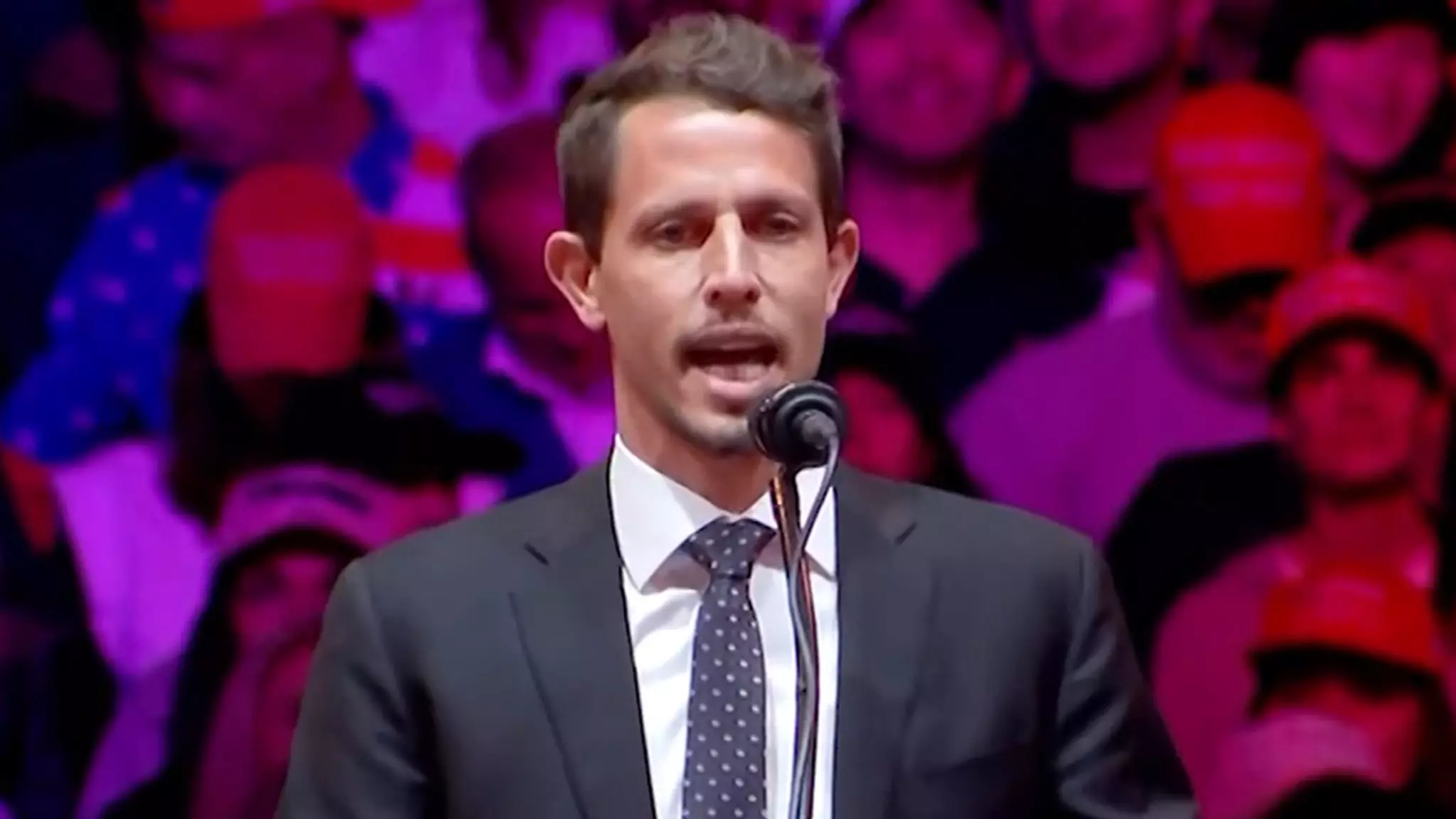Comedian Tony Hinchcliffe found himself at the center of controversy following his performance at a recent Donald Trump rally in Madison Square Garden. Known for his boundary-pushing comedy, Hinchcliffe’s set elicited a range of reactions from the audience. While some of his jokes received laughter and cheers, one particular quip struck a dissonant note, highlighting not just the risks of stand-up comedy but also the broader implications of humor in the political sphere.
The incident unfolded when Hinchcliffe made a joke about Puerto Rico, likening it to a “floating island of garbage in the ocean.” This comment, intended as satire, backfired spectacularly. Witnesses reported awkward silence from the crowd in response, a clear sign that Hinchcliffe had crossed a line in the eyes of many. While comedians often walk a tightrope of societal norms and personal sensibilities, this joke challenged the limits of what can be considered acceptable.
The immediate fallout from Hinchcliffe’s contentious remark was swift and marked by significant public backlash. Political figures, including Vice President Kamala Harris’s running mate Tim Walz and Congresswoman Alexandria Ocasio-Cortez, voiced their discontent, stressing that jokes about Puerto Rico need to reflect the dignity of its people, who are American citizens and contribute to society in various ways. Walz emphasized not only the importance of treating Puerto Ricans with respect but also pointed out the responsibility that comes with humor in sensitive contexts.
Hinchcliffe’s response revealed a level of defensiveness that is often seen in public figures embroiled in controversy. He asserted that as a comic, his intention was never to target a specific group with malice, but rather to offer a broader critique that included jabs at various communities. This justification does not diminish the impact of his words, though, as many feel that humor targeting marginalized groups can perpetuate harmful stereotypes and social stigma.
The incident underscores a critical tension in contemporary comedy: the balance between edgy humor and social responsibility. Hinchcliffe’s background in roasting celebrities has undoubtedly shaped his comedic style. However, jokes that spark outrage often highlight how social contexts and cultural sensitivities can redefine the lines comedians once navigated without consequence.
The reactions from notable figures, including musicians and politicians, reflect a growing demand for accountability in comedy. They illustrate a broader societal push to engage thoughtfully with humor that addresses race, nationality, and identity, especially in a politically charged environment.
As discussions around Hinchcliffe’s performance continue, they serve as a reminder that comedians wield significant influence and bear a societal responsibility. The convergence of comedy and politics, especially in settings like Trump’s rally, brings heightened scrutiny to the words spoken from the stage. In an era where social ramifications of speech are amplified, comedians must evolve their material to align with changing cultural expectations, lest they find themselves facing backlash reminiscent of Hinchcliffe’s current predicament.
While comedy can serve as a platform for provocative dialogue, it also requires an acute awareness of the diverse audiences it serves. Hinchcliffe’s recent gaffe may serve as a cautionary tale for comedians, reminding them that humor can indeed be a double-edged sword.

Leave a Reply